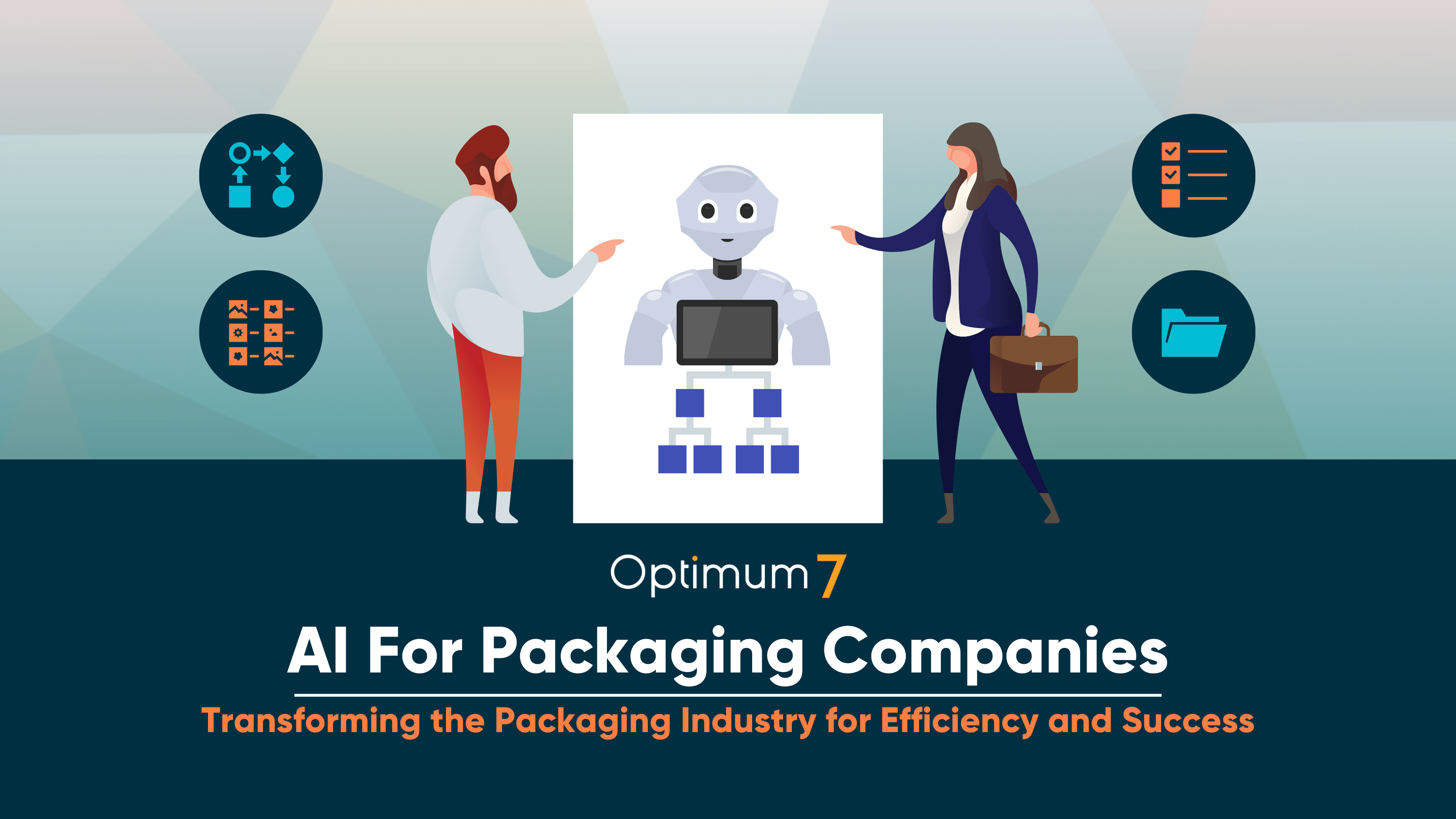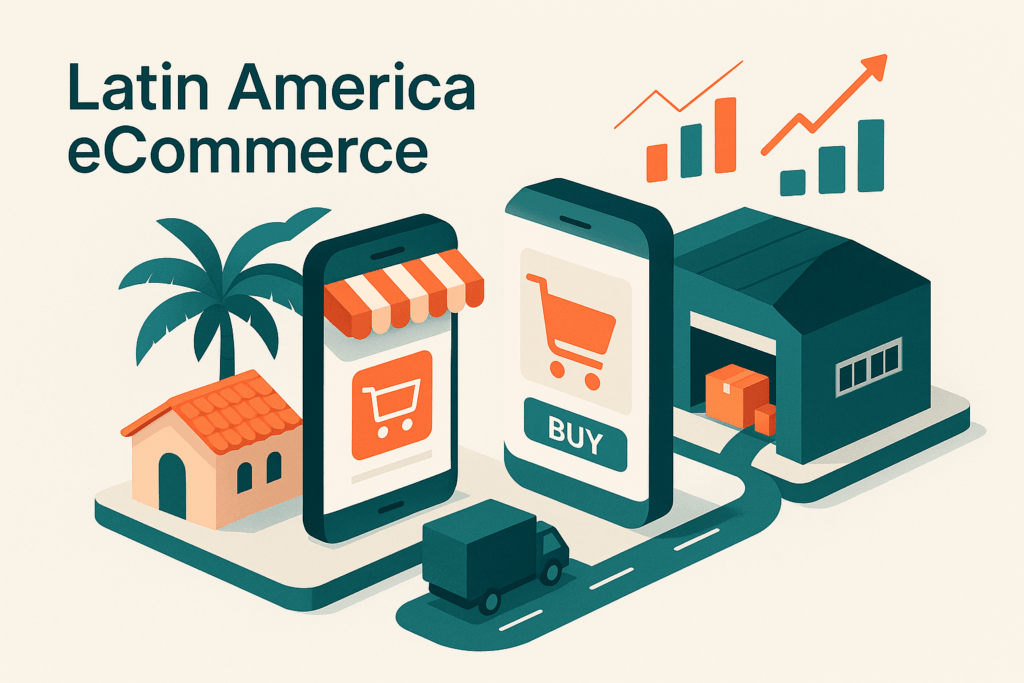In today’s fast-paced and ever-changing business landscape, companies are leveraging the power of artificial intelligence (AI) to gain a competitive edge. Packaging companies are no exception, and AI is rapidly transforming this industry. In this article, we will explore the emergence of AI in the packaging industry, key technologies transforming packaging, benefits of implementing AI, real-world AI applications, challenges in AI adoption, and the future of AI in packaging.
The Emergence of AI in the Packaging Industry
AI has been used in various applications, including autonomous vehicles, natural language processing, virtual assistants, and machine learning. In the packaging industry, AI is increasingly used to automate various processes, such as quality control, inspection, and supply chain management. AI has the potential to transform the industry by improving efficiency, productivity, and customer service.
A Brief History of AI in Packaging
The use of AI in the packaging industry goes back several years. Early applications of AI included automated sorting and palletizing, which relied on machine vision and robotics. However, as AI technologies advanced, packaging companies started implementing more sophisticated solutions, such as predictive analytics, natural language processing, and computer vision.
One of the earliest examples of AI in the packaging industry was the use of robots for palletizing. This process involved stacking boxes or products on a pallet, which was previously done manually. With the help of AI, robots could now perform this task autonomously, improving efficiency and reducing the risk of injury to workers.
Another early application of AI in packaging was the use of machine vision for quality control. This involved using cameras and sensors to inspect products for defects or inconsistencies, which could then be corrected before they were packaged and shipped to customers.
The Growing Demand for AI Solutions
The demand for AI solutions in the packaging industry is driven by several factors. First, packaging companies need to keep up with the increasing complexity of products and consumer demands. With the rise of e-commerce, packaging companies are now required to handle a wider variety of products, including fragile and perishable items, which require specialized packaging solutions. AI can help companies develop more efficient and effective packaging solutions to meet these demands.
Second, the need for improved efficiency and productivity is more critical than ever. With the rise of online shopping, packaging companies are now required to handle a much larger volume of orders, which can be difficult to manage without the help of AI. AI can help companies automate various processes, such as order fulfillment, quality control, and inventory management, which can improve efficiency and reduce costs.
Third, the pressure to reduce costs while maintaining quality standards is driving companies to explore the potential of AI solutions. With the rise of globalization, packaging companies are now facing increased competition from overseas manufacturers. By implementing AI solutions, companies can reduce costs while maintaining quality standards, which can give them a competitive advantage in the market.
In conclusion, AI is rapidly transforming the packaging industry by improving efficiency, productivity, and customer service. As AI technologies continue to advance, we can expect to see even more sophisticated solutions being implemented in the industry.
Key AI Technologies Transforming Packaging
The packaging industry is constantly evolving, and with the advent of artificial intelligence (AI) technologies, it is undergoing a significant transformation. AI is changing the way packaging companies operate, enabling them to increase efficiency, reduce waste, and improve product quality. The following are some of the key technologies that are transforming the packaging industry:
Machine Learning and Predictive Analytics
Machine learning and predictive analytics are revolutionizing the way packaging companies analyze and interpret large amounts of data. With the help of these technologies, companies can identify patterns, anomalies, and trends, and make predictions about future events. Machine learning can also be used to optimize production processes by identifying areas where improvements can be made, reducing waste, and improving product quality. By leveraging machine learning and predictive analytics, packaging companies can gain a competitive edge by making data-driven decisions.
For example, a packaging company may use machine learning to analyze customer data to identify patterns in purchasing behavior. They can then use this information to predict which products will be popular in the future and adjust their production accordingly. This can help the company to reduce waste by producing only what is needed, and improve customer satisfaction by ensuring that popular products are always in stock.
Robotics and Automation
Robotics and automation are increasingly being used in packaging processes, such as sorting, palletizing, and assembly. Robots can work faster and more efficiently than humans, and they can be programmed to perform repetitive tasks tirelessly. This not only improves efficiency but also reduces the risk of injury in the workplace. By automating packaging processes, companies can increase production capacity, reduce labor costs, and improve product quality.
For example, a packaging company may use robots to sort and palletize products. The robots can work 24/7 without getting tired, ensuring that production is always running smoothly. This can help the company to increase production capacity, reduce labor costs, and improve product quality by reducing the risk of human error.
Computer Vision and Image Recognition
Computer vision and image recognition are used to analyze images and videos to detect defects or anomalies in products. The technology can also be used to identify objects and labels, enabling packaging companies to identify and sort products more accurately. By leveraging computer vision and image recognition, packaging companies can improve product quality and reduce waste.
For example, a packaging company may use computer vision to detect defects in products as they move down the production line. The technology can quickly identify any defects, allowing the company to remove the faulty products before they reach the customer. This can help the company to reduce waste and improve product quality by ensuring that only high-quality products are shipped to customers.
Natural Language Processing
Natural language processing is used to extract meaning and context from text and speech. It can be used to automate customer service and support, enabling packaging companies to offer a more personalized and efficient service. By leveraging natural language processing, packaging companies can improve customer satisfaction and reduce the workload of customer service representatives.
For example, a packaging company may use natural language processing to automate their customer service chatbot. The chatbot can quickly understand the customer’s query and provide a personalized response, reducing the workload of customer service representatives. This can help the company to improve customer satisfaction by providing a more efficient and personalized service.
In conclusion, AI technologies are transforming the packaging industry in many ways. By leveraging machine learning, robotics and automation, computer vision and image recognition, and natural language processing, packaging companies can increase efficiency, reduce waste, and improve product quality. As these technologies continue to evolve, we can expect to see even more innovation in the packaging industry in the years to come.
Benefits of Implementing AI in Packaging Companies
The packaging industry is rapidly evolving, and companies are constantly seeking new ways to improve their operations. One of the most promising technologies that is being implemented in the industry is Artificial Intelligence (AI).
AI refers to the simulation of human intelligence in machines that are programmed to think and learn like humans. The benefits of implementing AI solutions in packaging companies are numerous:
Improved Efficiency and Productivity
AI can help packaging companies optimize their processes, reduce waste, and increase throughput. By using AI-powered robots and machines, packaging companies can automate repetitive tasks, such as sorting, packing, and labeling. This improves efficiency and productivity, resulting in cost savings and increased output.
Moreover, AI can help companies predict demand and adjust production schedules accordingly. This ensures that products are produced in the right quantities and at the right time, reducing the need for excess inventory and minimizing the risk of stockouts.
Enhanced Quality Control and Inspection
Quality control is a critical aspect of the packaging industry. AI can automatically detect defects and anomalies in products, improving the quality control process. By using machine learning algorithms, AI can learn what a good product looks like and identify any deviations from the norm. This reduces the need for manual inspection, resulting in fewer errors and higher quality standards.
Furthermore, AI can help packaging companies identify the root causes of defects and implement corrective actions to prevent them from occurring in the future. This leads to continuous improvement and ensures that products are of the highest quality.
Optimized Supply Chain Management
The supply chain is a complex and interconnected network of activities that involves multiple stakeholders, including suppliers, manufacturers, distributors, and retailers. AI can be used to monitor and optimize the supply chain, from production to delivery.
By using AI-powered analytics, packaging companies can gain real-time visibility into their supply chain operations. This helps them identify bottlenecks, optimize inventory levels, and reduce transportation costs. AI can also help companies predict demand and adjust their production and delivery schedules accordingly. This improves delivery times, reduces costs, and ensures customers receive the right product at the right time.
Reduced Waste and Environmental Impact
The packaging industry is under increasing pressure to reduce waste and minimize its environmental impact. AI can help packaging companies achieve these goals by optimizing production processes and reducing the amount of material used.
By using AI-powered sensors and cameras, packaging companies can monitor their production lines in real-time and identify areas of waste. They can then make adjustments to their processes to reduce waste and improve efficiency. AI can also help companies optimize their packaging designs to minimize material usage while still ensuring product safety and integrity.
In conclusion, AI is transforming the packaging industry by improving efficiency, enhancing quality control, optimizing supply chain management, and reducing waste and environmental impact. Companies that embrace AI are likely to gain a competitive advantage and achieve long-term success.
Real-World AI Applications in the Packaging Industry
The packaging industry has undergone a significant transformation in recent years, with the adoption of artificial intelligence (AI) technology. AI has revolutionized the packaging industry, enabling companies to optimize their operations, improve efficiency, and enhance customer experience.
Smart Packaging Design and Customization
One of the most significant applications of AI in the packaging industry is smart packaging design and customization. With AI technology, companies can design and customize packaging to meet specific customer needs. Smart packaging can also provide real-time information about the product, such as expiration dates and usage instructions. This not only enhances the customer experience but also helps companies to reduce waste and improve sustainability.
For instance, AI-powered software can analyze customer data and preferences to design packaging that appeals to their needs. This can include factors such as color, shape, and size. AI can also be used to optimize packaging design for shipping and storage, reducing the risk of damage or breakage during transit.
Automated Sorting and Palletizing
Another significant application of AI in the packaging industry is automated sorting and palletizing. AI can automatically sort and palletize products, optimizing the packaging process and improving efficiency. This not only saves time but also reduces the risk of human error, improving accuracy and consistency.
AI-powered robots can be programmed to sort products based on various criteria, such as size, weight, and shape. They can also be used to palletize products, ensuring that they are stacked correctly for storage and transportation.
Predictive Maintenance for Machinery
AI can also be used to predict when machinery is likely to fail, enabling preventative maintenance to be carried out. This reduces downtime and improves productivity. Predictive maintenance uses AI algorithms to analyze data from sensors and other sources to detect when machinery is likely to fail. This allows maintenance teams to carry out repairs before a breakdown occurs, reducing the risk of costly downtime.
For example, AI-powered software can analyze data from packaging machines to detect patterns that indicate a potential breakdown. This can include factors such as vibration, temperature, and pressure. The software can then alert maintenance teams to carry out repairs before the machine breaks down.
AI-Powered Customer Service and Support
AI can also be used to offer more personalized and efficient customer service and support. Chatbots and virtual assistants can provide 24/7 support, answering customer queries and resolving issues. This not only improves customer satisfaction but also reduces the workload of customer service teams.
AI-powered chatbots can be programmed to understand natural language and respond to customer queries in real-time. They can also be used to provide personalized recommendations based on customer preferences and purchase history. This enhances the customer experience and helps to build brand loyalty.
In conclusion, AI has significant applications in the packaging industry, from smart packaging design and customization to automated sorting and palletizing. Predictive maintenance and AI-powered customer service and support are also essential applications of AI in the packaging industry. As AI technology continues to evolve, we can expect to see even more innovative applications in the packaging industry in the future.
Overcoming Challenges in AI Adoption
Artificial Intelligence (AI) has revolutionized the way businesses operate, and the packaging industry is no exception. AI has the potential to streamline packaging processes, reduce waste, and improve efficiency. However, despite the benefits of AI, there are several challenges that packaging companies need to overcome to fully adopt this technology.
Addressing Data Privacy and Security Concerns
One of the biggest challenges in adopting AI is data privacy and security. AI relies on big data, but this data needs to be handled with care. Packaging companies need to ensure that the data they collect is secure and protected from cyber attacks. This means implementing robust security measures, such as firewalls, encryption, and access controls. It also means ensuring that employees are trained in data privacy and security best practices.
Moreover, packaging companies need to be transparent with their customers about how their data is being used. They need to provide clear and concise explanations of what data is being collected, how it is being used, and how it is being protected. This will help build trust with customers and ensure that they are comfortable sharing their data with the company.
Ensuring AI Ethics and Transparency
AI solutions need to be transparent and accountable. Packaging companies need to ensure that the decisions made by AI are fair, unbiased, and ethical. This means developing AI systems that are explainable and can be audited. It also means ensuring that AI systems are not perpetuating biases or discrimination.
Moreover, packaging companies need to be transparent with their customers about how AI is being used. They need to provide clear and concise explanations of how AI is making decisions and how it is impacting their customers. This will help build trust with customers and ensure that they are comfortable with the use of AI.
Investing in Employee Training and Skill Development
AI will change the nature of work in the packaging industry. Companies need to invest in employee training and skill development to ensure that their workforce is equipped to work alongside AI technologies. This means providing training on how to use AI systems, as well as training on new roles and responsibilities that may arise as a result of AI adoption.
Moreover, companies need to ensure that their employees are comfortable with the use of AI. This means involving employees in the AI adoption process and addressing any concerns or fears they may have about the technology. By investing in employee training and skill development, companies can ensure that their workforce is ready for the future of packaging.
In conclusion, while there are challenges to adopting AI in the packaging industry, these challenges can be overcome with careful planning, investment, and transparency. By addressing data privacy and security concerns, ensuring AI ethics and transparency, and investing in employee training and skill development, packaging companies can fully realize the benefits of AI and stay ahead of the competition.
The Future of AI in the Packaging Industry
The future of AI in the packaging industry is exciting. With the rise of new technologies and innovations, AI is poised to revolutionize the way we think about packaging and distribution. From improving efficiency to reducing waste, AI has the potential to transform every aspect of the packaging industry.
Emerging AI Trends and Innovations
New AI technologies are emerging all the time, and the packaging industry can expect to see continued innovations and advancements. For example, AI-powered robots could soon be used to automate the packaging process, reducing the need for manual labor and increasing efficiency. Additionally, AI algorithms can help optimize packaging designs to reduce waste and improve product protection during shipping.
Another emerging trend is the use of AI-powered sensors to monitor packaging conditions during shipping. These sensors can detect changes in temperature, humidity, and other environmental factors, allowing businesses to take proactive steps to prevent damage to their products.
Potential Impact on the Workforce
AI will change the nature of work in the packaging industry, but it is unlikely to replace human workers entirely. Rather, AI will augment and enhance human capabilities. For example, AI algorithms can help workers identify and sort products more quickly and accurately, reducing the risk of errors and increasing productivity.
However, some jobs may become obsolete as AI takes on more tasks. Workers in the packaging industry will need to adapt to these changes by developing new skills and taking on new roles that require human creativity and problem-solving abilities.
Collaborative AI and Human Partnerships
The packaging industry will need to develop more collaborative partnerships between AI technologies and human workers. This will require new skills and training to ensure that humans and AI can work together effectively. For example, workers may need to learn how to program and maintain AI systems, while AI algorithms will need to be designed to work seamlessly with human decision-making processes.
Ultimately, the future of AI in the packaging industry will depend on the ability of businesses to adapt to these changes and embrace new technologies. By working together, humans and AI can create a more efficient, sustainable, and innovative packaging industry for the future.
Conclusion
AI is rapidly transforming the packaging industry, with companies leveraging the power of advanced technologies to improve efficiency, productivity, and customer service. Despite the challenges of AI adoption, the benefits are numerous, and the future looks bright for the packaging industry. Companies that invest in AI today will be better equipped to face the challenges of tomorrow.






